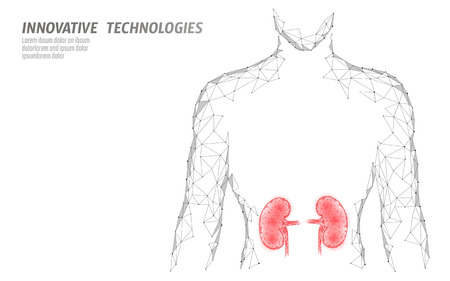1. Understanding Hope and Motivation in Recovery
Hope and motivation are two foundational pillars for anyone embarking on the journey of long-term recovery, whether from addiction, mental health challenges, or chronic illness. In the context of sustained wellbeing, hope refers to the belief that positive change is possible, no matter how difficult the circumstances may seem. It acts as a guiding light, encouraging individuals to envision a healthier future and take steps towards it, even when progress feels slow or setbacks occur. Motivation, on the other hand, is the driving force that transforms hope into action. It fuels daily choices and behaviours that support recovery, helping people maintain focus on their goals even when faced with obstacles. Together, hope and motivation not only foster resilience but also empower individuals to engage fully with treatment plans, seek support networks, and persevere through challenging times. Without these key elements, long-term recovery can feel insurmountable; with them, individuals are far better equipped to achieve lasting wellbeing and lead fulfilling lives.
2. The Psychological Benefits of Hope
Hope plays a crucial role in long-term recovery, especially when individuals face ongoing health challenges. From a psychological perspective, hope serves as a powerful emotional anchor that helps people maintain a positive outlook even during the most difficult times. Numerous studies have shown that those who actively nurture hope tend to experience better mental health outcomes, greater resilience, and an enhanced ability to manage setbacks.
When you have hope, your mind is more inclined to focus on possibilities rather than limitations. This shift in perspective can reduce feelings of helplessness and anxiety, both of which are common during recovery. In fact, cultivating hope has been linked to lower rates of depression and improved overall wellbeing. It empowers individuals to set meaningful goals and motivates them to take proactive steps towards their recovery journey.
Hope also boosts resilience—the inner strength required to bounce back after experiencing difficulties or relapses. With hope as a guiding force, setbacks become temporary obstacles rather than insurmountable barriers. Individuals with higher levels of hope are more likely to seek support when needed and engage in problem-solving behaviours that foster progress.
The Positive Impact of Hope During Recovery
| Aspect | Impact of Hope |
|---|---|
| Mental Health | Reduces anxiety and depression; increases sense of purpose |
| Resilience | Strengthens ability to recover from setbacks and adapt to change |
| Coping Strategies | Encourages proactive problem-solving and seeking support |
| Motivation | Keeps individuals focused on goals despite challenges |
Nurturing hope does not mean ignoring the reality of one’s situation; instead, it involves recognising difficulties while still believing in the possibility of improvement. For many people across the UK facing long-term recovery, integrating hopeful thinking into daily life can be transformative—making every step forward feel achievable and meaningful.

3. Motivation as a Driving Force for Change
Motivation plays a crucial role in the journey of long-term recovery, acting as the driving force that inspires individuals to initiate and sustain positive change. There are two key types of motivation—intrinsic and extrinsic—which both contribute significantly to the process of setting goals, maintaining progress, and overcoming challenges throughout recovery.
Intrinsic Motivation: The Power Within
Intrinsic motivation comes from within; it is fuelled by personal values, beliefs, and a genuine desire to improve one’s own life. When individuals in recovery are guided by intrinsic motivation, they often experience a deeper sense of purpose and satisfaction. This internal drive encourages people to set meaningful goals that resonate with their own aspirations, making it more likely that they will remain committed even when faced with setbacks or obstacles. For example, someone might be motivated to recover in order to rebuild relationships or pursue a new career path, rather than simply meeting external expectations.
Extrinsic Motivation: Support from Outside Sources
Extrinsic motivation, on the other hand, is influenced by external factors such as encouragement from family, friends, healthcare professionals, or participation in structured support programmes. Recognition, rewards, and positive feedback can all serve as powerful motivators to help individuals stay on track. In the context of British culture, support networks like peer support groups or NHS recovery services provide invaluable encouragement and accountability. While extrinsic motivation may not always have the same lasting impact as intrinsic motivation, it can play an essential role—particularly during challenging periods—by offering tangible reasons to keep moving forward.
Setting Goals and Sustaining Progress
Both types of motivation work together when it comes to setting realistic goals and maintaining steady progress. Intrinsic motivation helps ensure that goals are personally meaningful and aligned with one’s values, while extrinsic motivation provides the scaffolding needed for ongoing encouragement and reinforcement. By acknowledging and celebrating small achievements along the way, individuals build confidence and resilience—key elements for long-term success.
Overcoming Challenges in Recovery
The road to recovery is rarely linear; setbacks are normal and sometimes unavoidable. During difficult times, tapping into both intrinsic and extrinsic sources of motivation can make all the difference. Whether it’s recalling one’s own reasons for change or reaching out for support within the community, these motivational forces enable individuals to persevere through adversity and continue striving towards a healthier future.
4. Fostering Hope and Motivation: Practical Strategies
Building and sustaining hope and motivation are essential for anyone navigating a long-term recovery journey. While every individual’s path is unique, adopting practical, patient-centred approaches can make a significant difference in maintaining positive momentum over time. Below, we share effective strategies tailored for those living in the UK, with consideration for local resources and support systems.
Personalised Goal Setting
Setting realistic and meaningful goals is fundamental to nurturing hope. Start by identifying what matters most to you—whether it’s regaining independence, returning to work, or enjoying social activities. Break these aspirations down into manageable steps, celebrating each small achievement along the way. Working closely with your healthcare team or support network ensures your goals remain relevant and achievable.
Leveraging Support Networks
In the UK, there are numerous community-based resources available to support long-term recovery. Connecting with local peer groups, charities (such as Mind or Samaritans), and NHS services provides both practical assistance and emotional encouragement. Family, friends, and carers also play a crucial role in fostering a sense of belonging and shared hope.
Daily Routines that Encourage Progress
| Strategy | Description |
|---|---|
| Establish Consistency | Create a daily schedule that incorporates self-care, therapy sessions, and enjoyable activities to maintain structure and purpose. |
| Celebrate Milestones | Acknowledge progress regularly, whether it’s completing a task or simply having a good day. This reinforces motivation. |
| Practice Mindfulness | Engage in mindfulness or relaxation techniques such as meditation or gentle walks in nature, which are accessible throughout the UK. |
Accessing Professional Guidance
Your GP or specialist can offer tailored advice to help boost motivation during challenging periods. Cognitive behavioural therapy (CBT) and other talking therapies available on the NHS can be particularly effective in addressing feelings of hopelessness or stagnation. Don’t hesitate to seek additional support if needed; early intervention can prevent setbacks.
Staying Inspired through Community Engagement
Volunteering, joining local clubs, or participating in group activities not only enhances your sense of purpose but also connects you with others who understand your journey. Many UK communities offer inclusive initiatives designed specifically for people in recovery, providing safe spaces to share experiences and encouragement.
Sustaining hope and motivation is an ongoing process. By embracing these patient-centred strategies—and adapting them as your needs change—you can empower yourself to navigate recovery with resilience and optimism.
5. The Role of Community and Support Networks
Recovering from a long-term illness or condition is rarely a journey that anyone takes alone. In the UK, community and support networks play a crucial role in nurturing hope and maintaining motivation throughout the recovery process. Peer support is particularly powerful; connecting with others who have faced similar challenges can provide both inspiration and practical advice. Many individuals find it easier to stay motivated when they share experiences, successes, and setbacks with people who truly understand their journey.
Family involvement is another essential factor. Family members often provide emotional encouragement, help manage daily tasks, and advocate for the patient’s needs within healthcare systems. Their presence can be a constant reminder that progress, however gradual, is recognised and celebrated. For families seeking guidance, organisations such as Carers UK offer resources and support tailored to carers’ needs.
The role of healthcare teams—including GPs, nurses, therapists, and specialists—is also vital in building hope and motivation. NHS staff are trained not only to provide medical care but also to offer reassurance, set realistic goals, and celebrate achievements with patients. Many NHS Trusts facilitate access to local support groups or mental health services that focus on patient wellbeing beyond physical symptoms.
Support Resources in the UK
The UK offers a wide range of resources aimed at fostering community connections during recovery. Organisations such as Mind, Samaritans, and local NHS Recovery Colleges run workshops, group sessions, and helplines designed to empower individuals through education, peer interaction, and psychological support.
Building Motivation Through Connection
Engaging with these networks helps individuals feel less isolated and more hopeful about their future. Whether attending a local support group or reaching out online, these connections can reignite motivation when personal resolve falters. Knowing that help is available—and having a team of supporters—can make all the difference in sustaining hope throughout the ups and downs of long-term recovery.
Together Towards Recovery
No matter where you are on your journey, remember: you are not alone. The collective strength found in peer groups, family support, and dedicated healthcare teams across the UK serves as a foundation for lasting hope and ongoing motivation.
6. Overcoming Setbacks: Staying Motivated During Difficult Times
Setbacks and relapses are unfortunately common during long-term recovery, but they do not define your journey or diminish your progress. It’s important to remember that recovery is rarely a straight path; rather, it is filled with ups and downs, moments of doubt, and unexpected challenges. The key lies in how you respond to these setbacks and find ways to reignite hope and motivation.
Understanding Setbacks as Learning Opportunities
Firstly, try to view setbacks not as failures, but as valuable learning experiences. Reflect on what led to the difficult moment—was it stress, a particular trigger, or a change in routine? Understanding these patterns allows you to make adjustments and develop stronger coping strategies for the future. Remind yourself that everyone makes mistakes, and what matters most is your willingness to try again.
Seeking Support from Others
When facing challenging times, don’t hesitate to reach out for support. Speaking with friends, family members, or a professional can provide much-needed perspective and encouragement. Many people in the UK benefit from local support groups or online communities where shared experiences foster understanding and solidarity. Remember, you are not alone on this journey.
Practical Steps to Rekindle Hope
To reignite your motivation after a setback, consider setting small, achievable goals for yourself. Celebrate each step forward, no matter how minor it may seem. Revisit the reasons why you started your recovery journey in the first place—perhaps by keeping a journal or creating a vision board with positive affirmations. Engaging in regular self-care activities such as walking in nature, practising mindfulness, or simply talking to someone you trust can also help restore your sense of hope.
The Power of Self-Compassion
Above all, be kind to yourself. Practise self-compassion by acknowledging your efforts and treating yourself with patience. Everyone’s recovery is unique, and setbacks are simply part of the process. By choosing to persevere and seek positivity even in difficult moments, you build resilience and move closer towards lasting recovery.
7. Cultivating a Positive Future Outlook
Looking ahead with hope and determination is fundamental to sustaining long-term recovery. Developing a positive outlook for the future not only inspires motivation but also helps build resilience during challenging times. It is important to set realistic expectations, recognising that recovery is a gradual process with its own ups and downs. By breaking down your goals into achievable steps, you can maintain momentum and avoid feeling overwhelmed. Celebrating milestones—no matter how small—reinforces progress and provides encouragement to keep moving forward. Whether it’s marking weeks of sobriety, returning to work, or reconnecting with loved ones, each accomplishment deserves recognition. Embracing this mindset enables you to focus on possibilities rather than limitations, nurturing hope and self-belief. Remember, recovery is not about perfection but about continuous growth and learning. By looking forward with optimism and acknowledging every success along the way, you lay the foundation for a healthier, more fulfilling future.

